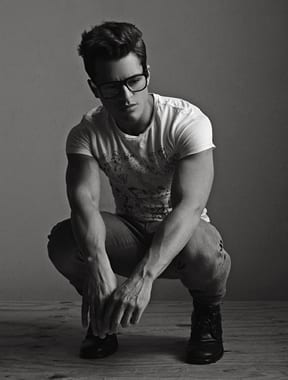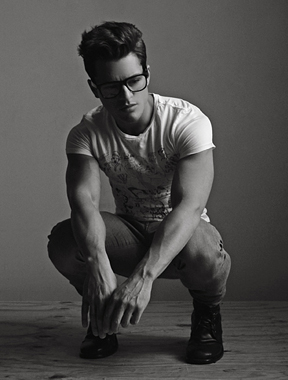Remembering Ryan White and the millions of gay men who died during the darkest days of our AIDS crisis
By C.L. Frederick
Contributing Columnist
It’s easy for the LGBTQ community to forget the past, since we are always looking forward and breaking down the societal barriers that have held us back for eons. I for one have been guilty of forgetting our past struggles for the sake of moving our community forward socially and, in all honesty, because I never believed our history applied to my life.
Then I was diagnosed with HIV. That was certainly was expectedly a life changing experience, but it also changed the way I looked at the gay community. Stories from our past became my saving grace.
I found myself being re-introduced to the era of the death sentence and I realized that I owed a debt of gratitude to those who came before me during the early days when medicine and treatments were not advanced enough to save lives, those who died during the time when HIV/AIDS was looked at as the “gay disease,” when hate and ignorance were mixed into one’s fight to live.
I was just a boy when AIDS began to enter the public consciousness, and I acutely remember hearing news reports and adults in my life discussing this “gay epidemic.” I just wanted to know why so many people were dying and why people on the news and the grown-ups I respected lacked sympathy for them.
I picked up on the vitriol being spewed at gay men with HIV/AIDS and it was jarring for me. News reports on TV seemed to shame these men and I was confused as to why that was. Then a few years later I heard about a boy named Ryan White who acquired HIV/AIDS through a blood transfusion.
He was a boy close to my age and I found myself paying attention to his story. He seemed so strong and was so well spoken. Here was a boy fighting for his life, growing gravely ill from his disease and treatments, a boy who encountered a great deal of hate and ostracism from all over the country because he wanted to simply go to school and be a part of his community.
Such hostility aimed a boy who did nothing to deserve the social prejudice added to his fight to live!
I could identify with Ryan and I continued to follow every bit of information concerning his journey as a youth with AIDS. This was not an interest that I could share with my family or friends, but my soul was rooting for him.
Ryan did not survive his fight against HIV/AIDS and when I learned of his death I was quietly heartbroken. Ryan’s life was quite possible the first human interest story to have an impact on my own humanity.
The years following Ryan White’s death saw HIV/AIDS treatments advance and prolong lives. I began to come into my own as a gay man and started to forget about those who had died. People with HIV/AIDS were living longer and issues like LGBTQ equality and gay marriage were on the cusp of national and worldwide attention.
I would think of Ryan’s life from time to time, but I failed to realize how globally impactful his story was and should continue to be.
After learning I was HIV-positive, I found myself searching for stories to relate to, stories to comfort me in my time of need.
One night I watched the HBO movie The Normal Heart, and I was reminded of the struggles gay men with HIV/AIDS dealt with at the onset. I don’t cry much, but watching the movie was an emotional rollercoaster for me. I have never been moved to that extent or cried so much because of a film.
To be reminded of those who came before me was a painful and humbling moment. The cards were stacked against them during that time: medications that would put a body through hell, men fighting to live only to be beaten down by society and ignorance in the process, and the fact that most knew they were dealing with a death sentence.
I am able to live a fairly normal life as a positive man today because of their voices, their fight and their bravery to live in the face of so many painful obstacles constantly working against them. Living with HIV/AIDS today still has its challenges. It is still a mountain of obstacles to overcome to remain healthy and get access to medications and treatment.
But the fact is that I only deal with a fraction of the challenges that those who came before me encountered. We have lost millions of voices that could have told us billions of stories. And I can’t help but think how different life would be today if we never had to lose any of those men.
What plays would have been written? What art created? Would one have become our first gay president? Was one my soul mate?
I get to live today, but I fully realize that all who have died of AIDS deserved to live just as much as I do. I will never again forget the legacy of Ryan White and the men who came before me.

















